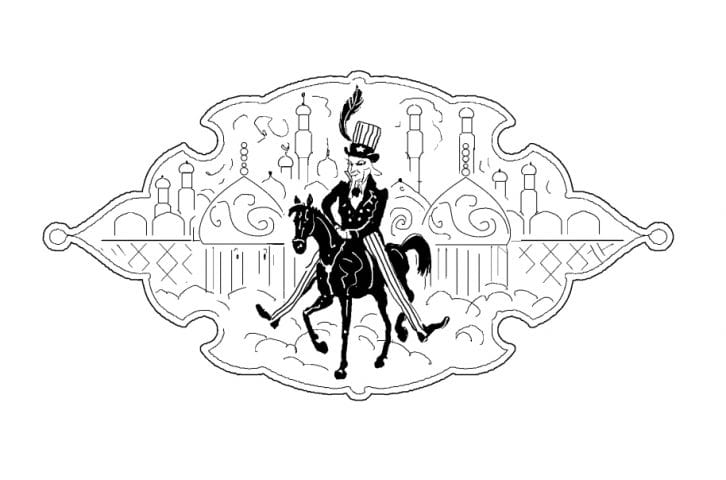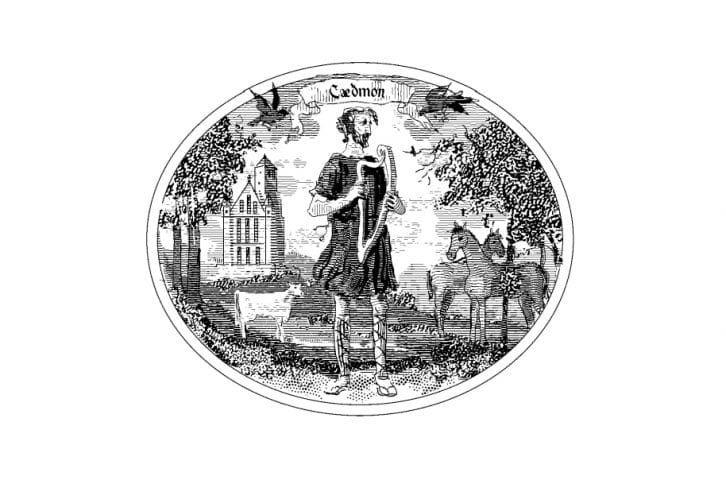Books Reviewed
A review of Power, Faith, and Fantasy: America in the Middle East, by Michael B. Oren
When President George W. Bush announced that the United States would try to "democratize" the Middle East, some Americans shuddered and the rest were astonished. Experts accused Bush of a radical departure from traditional U.S. foreign policy. Ordinary Americans, for their part, wondered about Islam's violent fanatics and feared that the region was entirely alien to our own experience. In Power, Faith, and Fantasy, Michael B. Oren, a senior fellow at the Shalem Center in Jerusalem and author of the impressive Six Days of War: June 1967 and the Making of the Modern Middle East (2002), examines Bush's policy in the light of history and discovers that its audacity is far from unprecedented. By and large, Bush's aspirations fall into the pattern of American involvement in the Middle East. In fact, the American encounter with the Middle East dates from the beginning of the republic; Oren writes to enlighten us about our own history.
Condemned as I am professionally to read the gusher of rant and rave about the contemporary Middle East, I found the book's bulk and subject initially dismaying. But Oren focuses on the pre-1953 period and devotes only 100 pages to the rest; he wisely decided to cover the much forgotten rather than the much debated. What's more, he does history the old-fashioned way, with 129 pages of footnotes and bibliography, and with maps, a chronology, and a fine selection of portraits and photographs that make up nearly one-fifth of the text. The narrative is ornamented by shrewd biographical sketches of Americans obscure and famous. And what Americans we find here! Merchants, missionaries, soldiers, statesmen, gamblers, fools—all exemplifying that typically American character, by turns lovable and infuriating, which the historian Walter McDougall calls the "hustler": he (and she) of the inexhaustible urge to do big things quickly, and sometimes not so legally. The Middle East, originally called the Near East or the Orient—lucrative, mysterious, and sacred—was, and is, the natural playground for such talents.
The book is an adroit combination of narrative and biography. Its argument is that three themes, power, faith, and fantasy, have defined the American encounter with the Middle East. By power Oren means the usual exertions of military and economic influence; faith, the lure of the region, especially Palestine, to a deeply Protestant republic; and fantasy, illusions about the Middle East that inspired many a do-gooder, carnival barker, Hollywood mogul, and president. Some may be skeptical of this trinity. But they have the daunting task of finding another explanation for America's involvement in the region. The U.S. consistently has provided the Middle East advanced technology, advocated democracy or offered to mediate peace, and supported a Jewish State in Zion as both desirable and practical.
* * *
Oren posits that the Middle East has had a much greater influence on American identity and fortunes than is usually believed. It was the U.S. Navy's 1815 victory over the pirates that won the country international respect and safeguarded its early trade. The American Board of Missions installed the modern educational institutions of the Turks and Arabs (e.g., the American College of Beirut), a by-product of an otherwise failed effort to convert Muslims and Jews (and other Christians) to varieties of Protestantism. After the Civil War, officers both Union and Confederate trained the Egyptian military. American engineers built a modern shipyard and armory for the Ottomans. And in the late 19th century the Middle East became a prime attraction for wealthy (and not so wealthy) American tourists.
The decade after the Civil War marked a high time for distinguished U.S. visitors, including General William Tecumseh Sherman (1872), the young Theodore Roosevelt (1872), and former president Ulysses S. Grant (1878). They were lavishly feted by local potentates who saw the U.S. as a balancing power against the increasingly rapacious Europeans. Mark Twain visited in 1867 and his best-selling travel account in The Innocents Abroad deflated American illusions about the region and, mordantly, about themselves.
Americans read Twain and guffawed at their own foibles, but he did not diminish their conviction that U.S. missionary efforts would transform the people there and the world with them. This innocence still persists. Forty summers ago, studying Arabic at Princeton, I encountered a young Baptist couple from Tennessee. They had come to learn the language in order to convert the Muslims. When I questioned their chances of success—given the record—they informed me that even without knowing Arabic they had already in a single afternoon turned a dozen Muslims in the Old City of Jerusalem toward the Truth. When I ventured that this conversion had occurred among merchants in the Souk, they exclaimed, "How did you know?"
* * *
Oren skillfully traces the persistent American enthusiasm for restoring Jewish control over Palestine, an impulse that predated Theodor Herzl and indeed Zionism among American Jews. Abraham Lincoln, for example, said, "Restoring the Jews to their national home in Palestine…is a noble dream and one shared by many Americans." Countless clergymen and their congregations believed that the Jewish Return would trigger the return of Jesus and the Jews' conversion. Although the mainline Protestant denominations would drop restorationism (which often co-existed with rank anti-Semitism) and become fierce opponents of Zionism—lest it jeopardize their educational mission to the Muslims—the Zionist theme resonated with most presidents right up through Ronald Reagan. Oren even uncovers the astonishing fact that a 19th-century forebear of the Bush family, also named George Bush, wrote a once famous Zionist tract. Thus quite contrary to Jimmy Carter's vengeful campaign or academic fulminations against the "Israel Lobby," a very large non-Jewish Zionist lobby existed well before Herzl and was, you might say, as American as apple pie.
By 1914 a distinctive American approach to the Middle East had emerged. Those concerned with American power in the region were well represented by the visiting generals, presidents, and Captain Alfred Thayer Mahan, the geopolitical theorist who coined the term "Middle East." These men saw Islam as backward and argued over the role of European empires, but were sure that American military power, occasionally but amply exercised, was needed to safeguard U.S. interests. American traders, including arms salesmen, gravitated to this group. Americans drawn to the region by faith included the missionary-educators and the restorationists. These two groups would split over the Zionist enterprise, the former lobbying against the latter in the name of "modernizing" the Arabs through Western education. Most in both groups were anti-European and favored local nationalists. Finally, some Americans, drawn mostly from the realms of politics, literature, and entertainment, were entranced by a vision of a Middle East as an exotic, mysterious realm of the imagination that offered thrills and amusement. This group, however, tells us more about ourselves than about anything in the region.
Power, faith, and illusion do not travel well together. Oren spends much of the post-1914 period exposing the often inept compromises made by American leaders who themselves reflected the three impulses. Woodrow Wilson stayed neutral toward the Turks in World War I and couldn't save the Armenians, but he did help the Jews. America provided a haven for, among others, David Ben-Gurion, who would become Israel's first prime minister. Franklin Roosevelt was reluctant to intervene to save Jews during the Holocaust. Yet in his 1945 meeting on a battleship in the Suez Canal with Ibn Saud, Roosevelt apparently urged Saudi Arabia's founding monarch to support Zionism.
Oren compiles a catalogue of American presidents trying to have it both ways, from Truman's dogged search for compromise between nascent Israel and the Arabs in 1947-48, to Eisenhower's angry but self-defeating anti-imperialism in 1956 when he opposed Britain and France in the Suez Canal crisis; and from JFK's unrewarded indulgence of Nasser to LBJ's fantasy international regatta intended to prevent the Six-Day War. Jimmy Carter achieved the 1979 Camp David accords, and Reagan achieved (in Oren's view) only confusion, e.g., in his disastrous intervention in Lebanon in 1983-84, and, of course, the Iran-Contra affair. George H.W. Bush managed crises better than he did their aftermath, and Bill Clinton was a bystander, timid about al-Qaeda, and a failure at Camp David in 2000. (Oren oddly omits this item.) Which leaves George W. Bush, who appears a kind of composite of all the foregoing, a faithful Wilsonian ready to transform the Middle East and a Zionist even without the Jewish vote, yet prepared to use overwhelming force even if his geopolitics turn out to be faith-based. Oren gives the attempted Pax Americana by American presidents the ironic title "The Thirty Years' War."
* * *
In a work of this size and scope, there will be slips. Oren exaggerates by casting the Barbary episode as a confidence-booster that helped pave the way for the Monroe Doctrine. His hand becomes less sure on recent events. The U.S. had neither an alliance nor a proto-alliance with Saddam during the Iran-Iraq war of the 1980s. The policy instead was to weaken Iran and Iraq. Saddam fought the war with Arab money and Soviet and French weapons. The U.S. remained marginal until perhaps the end, when Khomeini used the U.S. reflagging of Kuwaiti oil tankers as a reason to agree to a cease-fire, fearing that the U.S. intended to join the war on Saddam's side. Oren would also have done well to classify under his rubric of fantasy the U.S. diplomat Philip Habib (he believed more in Lebanon than the Lebanese did) and the late Caspar Weinberger (no pragmatist, he believed the Saudis could take care of American interests in the Middle East). Finally, Oren understands political scientist Samuel Huntington's The Clash of Civilizations and the Remaking of World Order (1996) primarily in connection with the debate over Middle East policy, when in fact its chief aim was to counter Fukuyama's The End of History and the Last Man (1992), another American fantasy. But these and other imperfections do not vitiate Oren's achievement in the book nor the rightness of his thesis. Everything the U.S. is doing today in the Middle East has a precedent—including the attempt to change a government by force, which occurred during the abortive Eaton expedition against Yusuf Qaramanli, the ruler of Tripoli, in spring 1803. But that precedent is not a harbinger of success.
Conscious perhaps that Americans like happy endings, Oren's book tries to supply one. He concludes that "by protecting themselves from Middle East threats while simultaneously trying to assist native peoples," today's Americans are acting comfortably within the nation's traditions. He argues that, on balance, the U.S. has "caused significantly less harm than good." And then, a final flourish: "By responsibly wielding its strength and consistently upholding its principles, the United States might yet transform its vision of peaceful, fruitful relations with the Middle East from fantasy into reality." Erring on the side of fantasy, this sentence sounds like one of those Hollywood voice-overs that follow a tragic finale, assuring the audience that all will turn out right. Oren thus ends on a very American note.



